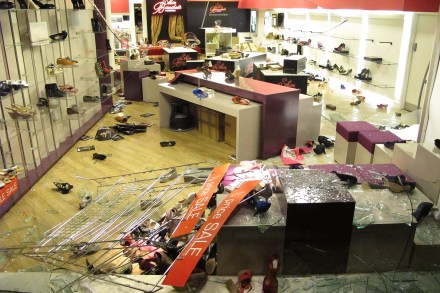A friendly gesture…
The police received a savaging in parliament earlier. I lost count of the number of MPs who relayed their constituents’ anger about riot police who stood by as buildings burned. Cameron’s defence – that the police response had been inadequate to adapt to a new threat posed by crime facilitated by social networking – did not allay the concern. By the end of the debate, there was consensus among many backbenchers that police officers should receive training in riot control as part of their basic training. The extraordinary incidents in London and elsewhere have been at the centre of the world’s eye, and the police have not escaped censure. Le Monde carries a wonderfully mischievous













